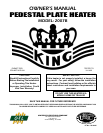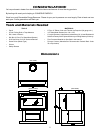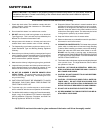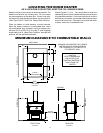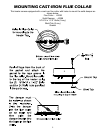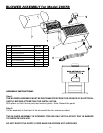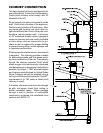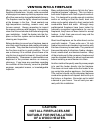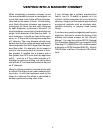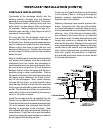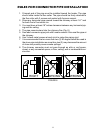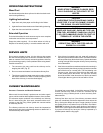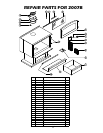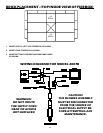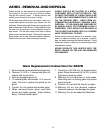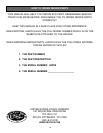9
When considering a masonry chimney, round
tiles are preferable to square or rectangular, as
round tiles have much better airow character-
istics and are far easier to clean. Unfortunately,
most North American chimneys use square or
rectangular tile liners that are really designed
for open replaces, not stoves or furnaces. Of
most importance, second only to overall chimney
height, is the diameter of the ue liner itself. In
most instances, it should be sized to the appli-
ance; i.e., 6" ue outlet on the appliance requires
a 6" chimney. The inner diameter should never
be less than the ue-outlet diameter and should
never be greater than 50% larger than the appli-
ance ue outlet. For example, do not expect a
wood or coal burning stove or furnace to func-
tion properly if installed into a chimney with a
ue greater than 50% more than the appliance
outlet - - such as a 6" ue outlet requires a 6"
diameter for optimum drafting, but can function
well with an 8", but becomes borderline beyond
an 8" diameter.
Masonry chimneys built of concrete blocks with
or without ue liners do not meet modern build-
ing codes. A solid fuel appliance must not be
joined to a chimney ue which is connected to
another appliance burning other fuels.
If your chimney has a typically oversized ue
liner of, say 8 x 12 inches, or greater, or if it is
unlined, it will be necessary for you to reline the
chimney, using any of the modern approved and
economical methods such as stainless steel,
castable refractory, or properly sized reclay
linings.
If you have any questions regarding venting your
appliance, feel free to contact the factory at the
address and phone number on this Owner's
Manual. You may also contact NFPA (National
Fire Protection Association) and request NFPA
Standard 211 (1984 Edition-US). Another helpful
publication is NFPA Standard 908(US). Specify
1984 Edition of either of the above US publica-
tions.



